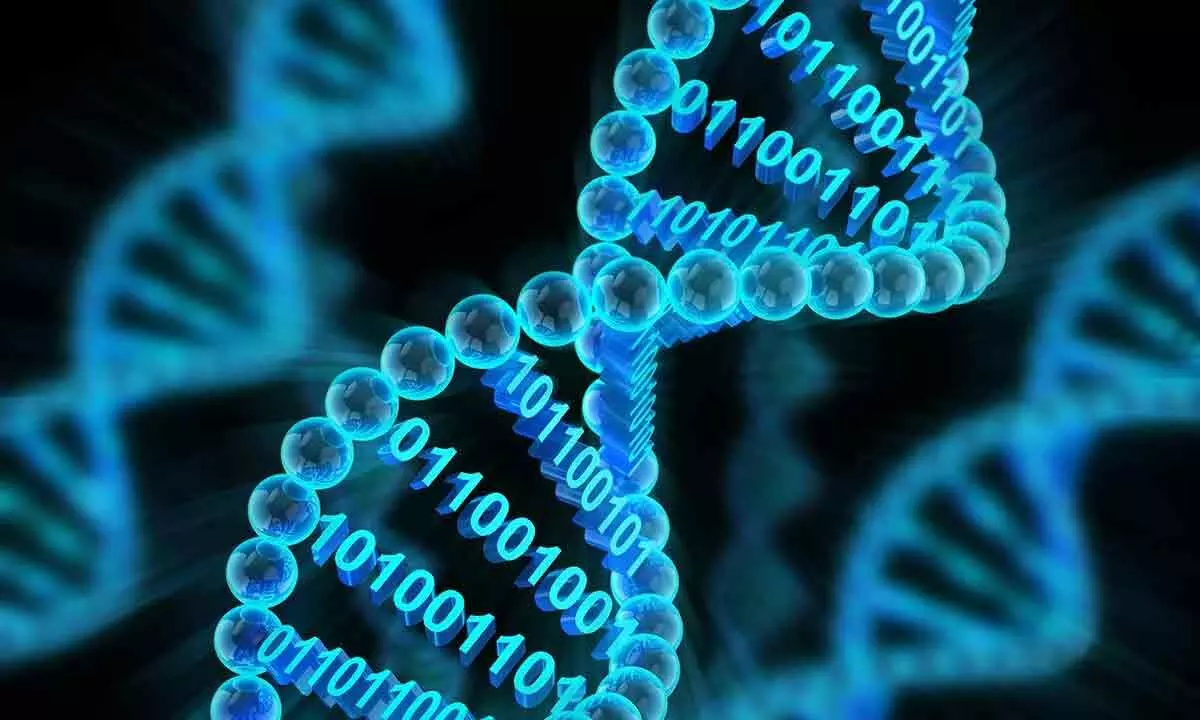Live
- All you need to know about PAN 2.0
- Akasa Air redefines travel experience with industry-first offerings
- MP: Residents stage protests against liquor shop in Indore
- Telugu Actor Shri Tej Booked for Alleged Cheating and False Promise of Marriage in Live-in Relationship
- Toyota Kirloskar Motor Celebrates 1 Lakh Urban Cruiser Hyryder on Indian Road
- MLS: New York City FC part ways with head coach Nick Cushing
- Delhi CM says Centre cutting AAP voters’ names from rolls, BJP hits back
- Hyderabad Metro Rail Phase-II Works to Begin in Old City in January 2025
- Odisha: 668 persons killed in human-elephant conflicts in last three years
- DEFENDER JOURNEYS: TO EMBARK ON ITS THIRD EDITION FROM NOVEMBER 2024
Just In
Synthetic DNA, the future of data storage


Synthetic DNA, the future of data storage
Out of the 64.1 zettabytes (ZB) of data created in 2020, only 2 per cent was saved or retained into 2021, it is said. Is there no way we could store all the data created, or at least, what is all necessary that will be useful to the future of mankind?
Out of the 64.1 zettabytes (ZB) of data created in 2020, only 2 per cent was saved or retained into 2021, it is said. Is there no way we could store all the data created, or at least, what is all necessary that will be useful to the future of mankind?
We entered the Zettabyte Era in the mid-2010s. A zettabyte is a multiple of the unit byte that measures digital storage, and it is equivalent to 1,000,000,000,000,000,000,000 [10 raised to the power 21] bytes. That is difficult to be shelved for sure. If we were to store 5 zettabytes on DVDs, your stack of DVDs would be long enough to circle the Earth more than six times. The problem with the world in this regard is it produces more than its capacity to store, far exceeding the storage capacities.
According to a report by IDC, by 2025, 49% of the world's total data will be stored in cloud servers for which we require thousands of acres of land. In all, three per cent of the global power is being consumed by Google, Apple, Facebook, Amazon and Microsoft for storage of the info. Is there a method with which we use lesser space but store more data more efficiently?
Sometime back the startup, Iridia, closed a $6 million financing round to help it develop DNA-based memory chips for the data storage market. This is a new technology that could revolutionize the data industry and its storage methods. Iridia's technology is designed to integrate the writing and storage of massive amounts of data using synthetic DNA as the storage media. The company intends for the technology to increase data density and durability and reduce the physical and carbon footprints of data centres, according to the heads of the company. Carverr, a synthetic biology company, charges $1,000 for storing its customer's personal data including bank account details and Bitcoin passwords in DNA. DNAScript, a startup working on the world's first benchtop DNA printer based on enzymatic technology, has raised $62 million over six rounds of funding. Reports also suggest that Twist Bioscience, another company which specialises in DNA synthesis, has raised a total of $259 million till date. The company collaborated with DARPA, Microsoft Research & University of Washington for a project MemoriesInDNA in which they successfully stored 10,000 crowdsourced images using DNA.
For the researchers, the next challenge involves producing search optimization methods in order to automate the process of searching images with specific visual markers within the DNA itself, without having to sequence the data into digital format. Research in such projects will be a major step forward towards the idea of DNA Computing. Twist relies on "a capital-intensive and centralized model using traditional phosphoramidite chemistry," while DNA Script uses "very efficient enzymes called polymerases" which perform DNA synthesis at the speed of nature. It is quite complicated and time consuming research no doubt. But there is no other alternative. There is no limit to sophistication and technology development. Once you begin to do it, you need to further evolve. That is all.
Best of luck to the DNA storage technologists.

© 2024 Hyderabad Media House Limited/The Hans India. All rights reserved. Powered by hocalwire.com






